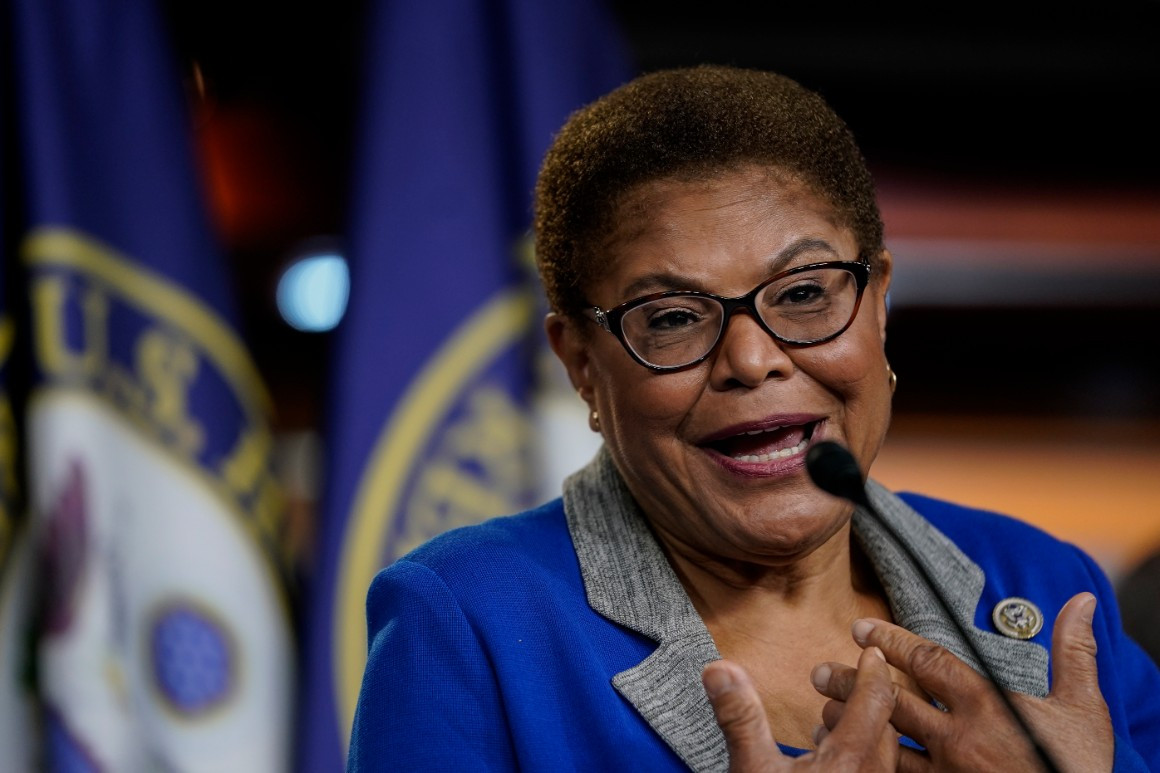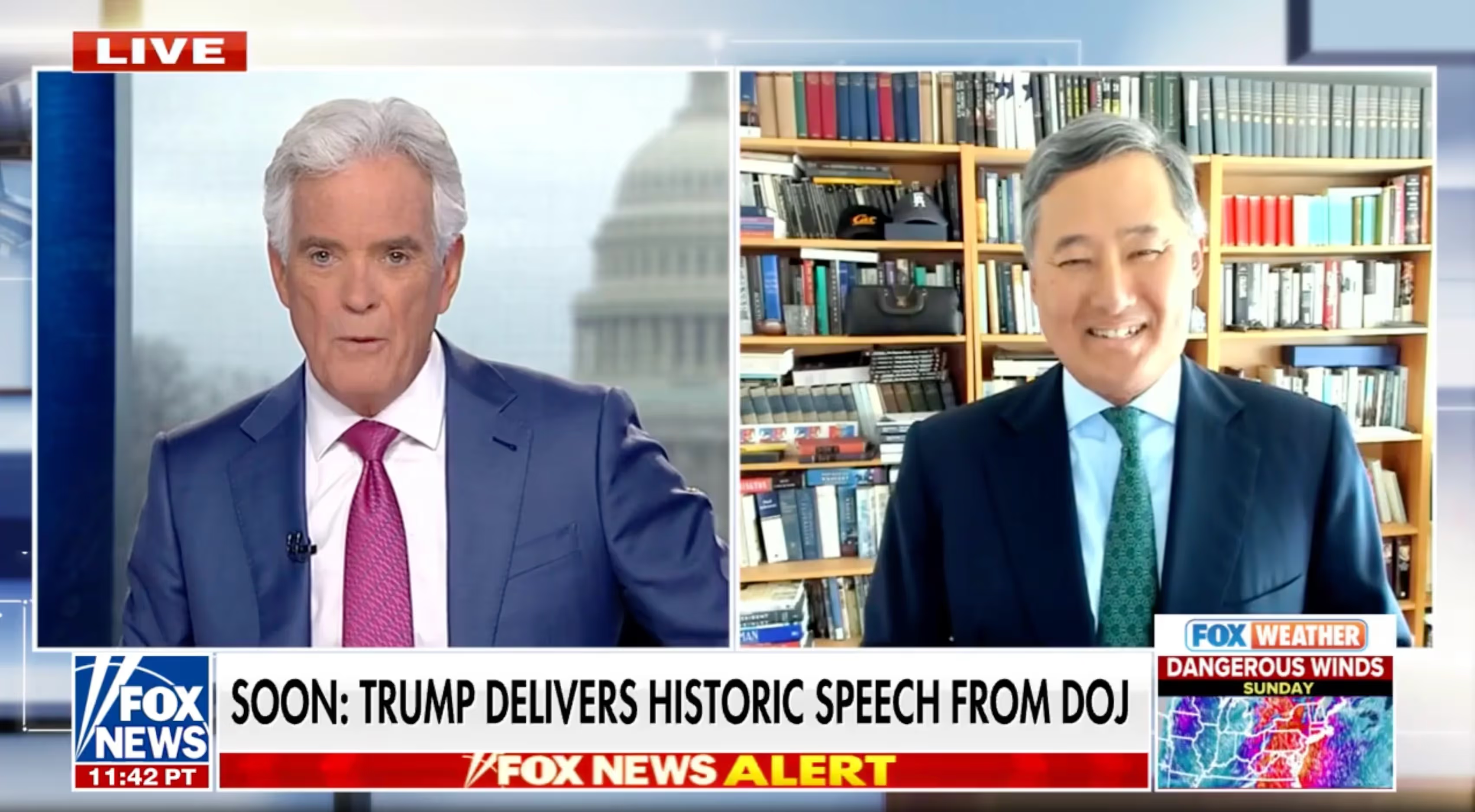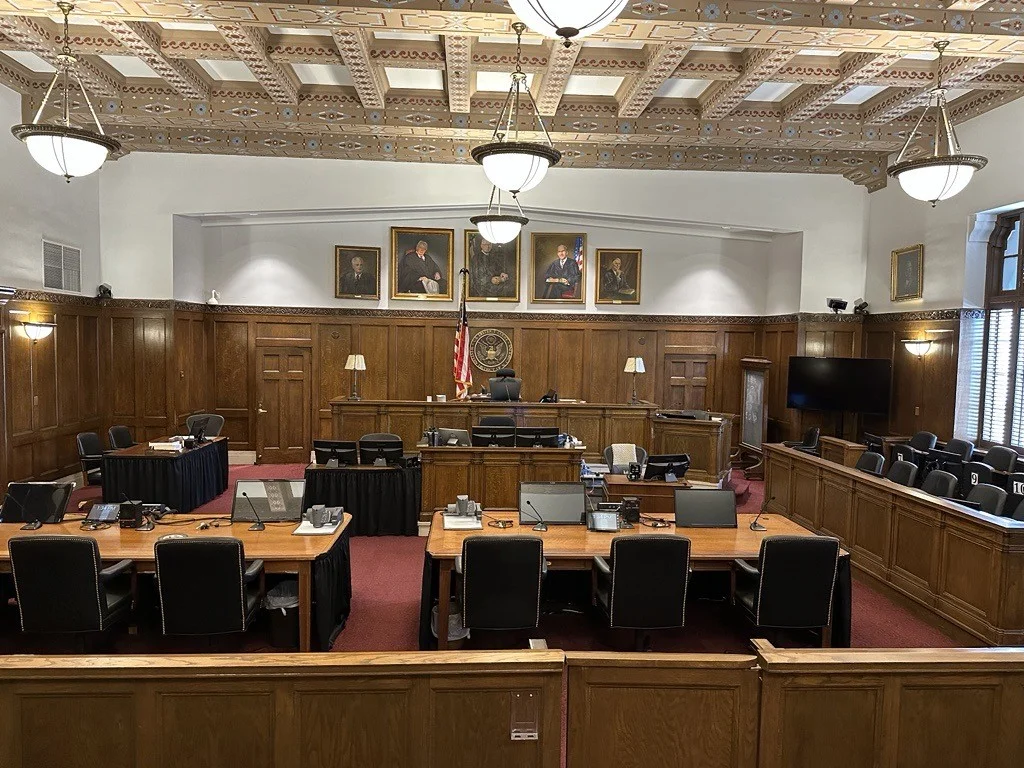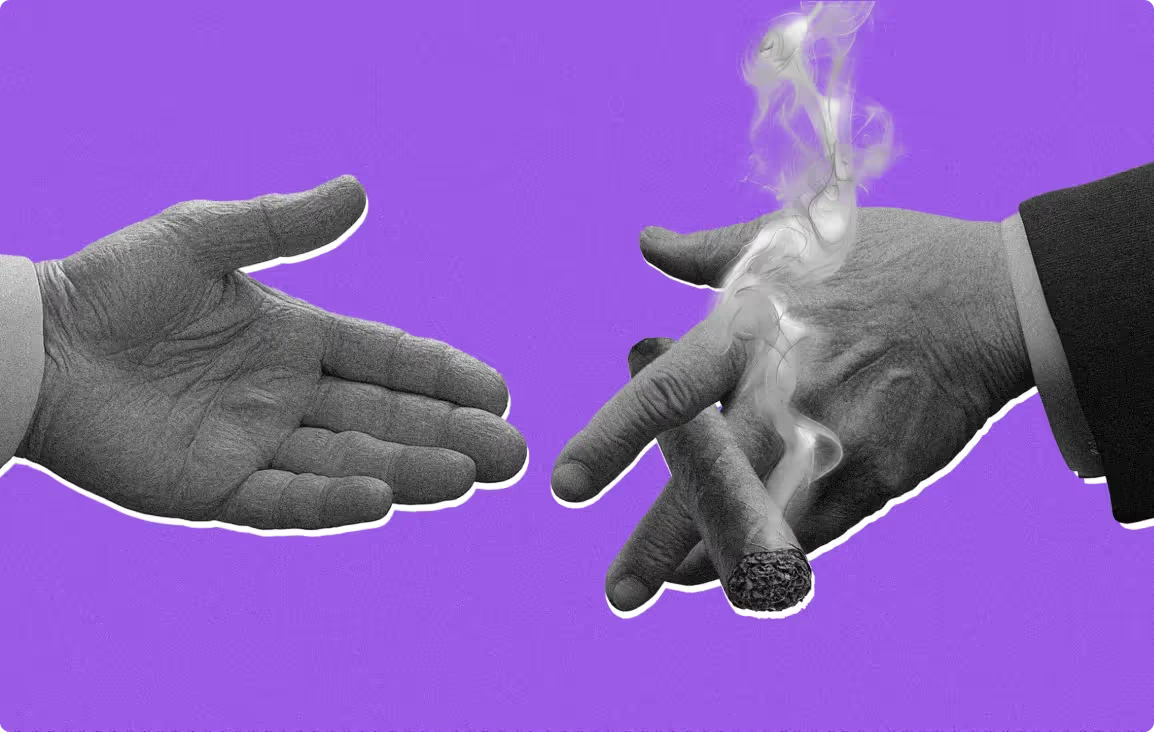
Winston Churchill and the US-UK Special Relationship: Then and Now
The obituary of the Special Relationship has been written many times over the past three quarters of a century, yet world events constantly revivify and underline its importance to both countries.
In his famous Iron Curtain speech, delivered at Fulton, Missouri, on March 5, 1946, Winston Churchill coined the phrase “Special Relationship.” Before considering what exactly he meant by the phrase, we need to clear up some myths concerning it. The first myth is that Churchill was referring exclusively to a relationship between the United States and the United Kingdom. Yet what Churchill actually asked was, “Would a special relationship between the United States and the British Commonwealth be inconsistent with our over-riding loyalties to the World Organisation?” (The World Organization was one of the names then given to what was later called the United Nations.)
Churchill answered his rhetorical question by stating:
On the contrary, it is probably the only means by which that organisation will achieve its full stature and strength. There are already the special United States relations with Canada … and there are the special relations between the United States and the South American Republics. We British have our twenty years Treaty of Collaboration and Mutual Assistance with Soviet Russia. … The British have an alliance with Portugal unbroken since 1384. … None of these clash with the general interest of a world agreement, or a world organisation; on the contrary they help it.
Far from being a statement about some kind of unique relationship between the U.S. and the U.K., therefore, Churchill’s initial statement—at least in the Iron Curtain speech where the phrase first appears—placed it firmly in the context of several other alliances, even one with Joseph Stalin’s U.S.S.R. It is interesting that in the five million words of his collected speeches—superbly curated by the Churchill Project at Hillsdale College, Michigan—the phrase Special Relationship only appears one other time, when, eight months after Fulton, he argued in a debate in the House of Commons that, “We should not abandon our special relationship with the United States and Canada about the atomic bomb, and we should aid the United States to guard this weapon as a sacred trust for the maintenance of peace.” So there, too, the reference was not to an exclusive Anglo-American relationship.
It was not in the Iron Curtain speech that Churchill put forward the idea of an overarching Anglo-American alliance, but instead at a speech he had delivered two and a half years earlier at Harvard University on September 6, 1943, also while accepting an honorary degree. He had traveled to Washington a week earlier to discuss with President Roosevelt the secret negotiations then taking place between the Allies and Marshal Badoglio’s government concerning the projected Italian surrender. Churchill later wrote of his Harvard speech, “It was to be an occasion for a public declaration to the world of Anglo-American unity and amity.” Although he did not employ the specific phrase Special Relationship, the Harvard speech went much further in advancing the concept than the speech at Fulton, where it did appear.
“Throughout all this ordeal and struggle which is characteristic of our age,” Churchill told a packed meeting in the Sanders Theatre on Quincy Street at Harvard,
you will find in the British Commonwealth and Empire good comrades to whom you are united by other ties besides those of State policy and public need. To a large extent, they are the ties of blood and history. Naturally, I, a child of both worlds, am conscious of these. Law, language, literature—these are considerable factors. Common conceptions of what is right and decent, a marked regard for fair play, especially to the weak and poor, a stern sentiment of impartial justice, and above all the love of personal freedom.
Churchill pointed out that speaking the same language meant that it “has enabled us to wage war together with an intimacy and harmony never before achieved among allies.” This was true; the relations between the British Chiefs of Staff and the U.S. Joint Chiefs of Staff undoubtedly became strained at times, especially over the issue of the timing of Operation Overlord, but overall, they were remarkable for the way in which the bonds never broke. (As Churchill joked to Field Marshal Alanbrooke, “The only thing worse than fighting with allies is fighting without them.”)
The Combined Chiefs of Staff’s close cooperation stemmed more from their common interests in destroying fascism across the globe than their use of a common language, of course, but it certainly helped enormously. Churchill quoted with approbation Otto von Bismarck’s comment about the coming twentieth century that, “a dominating fact in the modern world was that the people of Britain and of the United States spoke the same language.”
And what a language it is: featuring half a million words, which is thrice that of German and four times that of French. The phrase “freedom of speech” appears in print in English a full century before it its French counterpart, and the quality of that speech is concomitantly profounder for its being capable of being expressed in so wide and varied a way. Churchill, who was to go on to win the Nobel Prize for Literature, understood all this well.
Churchill was on much less sure ground when he went on to state that, “The gift of a common tongue … may well some day become the foundation of a common citizenship. I like to think of British and Americans moving about freely over each other's wide estates with hardly a sense of being foreigners to one another.” Having had an American mother and a British father, Churchill undoubtedly saw himself as personifying this concept of a common citizenship, but it never got off the ground as a serious political proposal. If Churchill had been hoping that by floating the idea at Harvard that it might develop into something concrete, he was to be disappointed.
It was not the first time in the Second World War that he had considered the idea of pooling British sovereignty and citizenship. In mid-June 1940, shortly before the fall of France, there was a serious proposal put forward by the British Foreign Office to merge the British and French empires together into a single political entity. The intention, of course, was to try to keep the French in the war, as well as to allow the Allies to continue to use the French navy and overseas territories in the war against the Nazis after metropolitan France fell.
Discussions began between the two governments; there was even a postage stamp designed. But it all came to a halt with Marshal Petain’s capitulation to the Germans a few days later and is today merely one of those weird What Might Have Beens of history. One person who doesn’t seem to have been informed about the idea at all was King George VI, who might have had something to say on the matter.
For all that Churchill’s kite didn’t fly over the idea of common U.S.-U.K. citizenship in the Harvard speech, he was on much stronger ground when he came to discussing, though not by name, America First and the isolationist movement headed by Charles Lindbergh that had sought to keep the United States out of the Second World War before the attack on Pearl Harbor, and Adolf Hitler’s declaration of war on America four days later.
“Twice in my lifetime,” Churchill said,
the long arm of destiny has searched across the oceans and involved the entire life and manhood of the United States in a deadly struggle. There was no use in saying “We don't want it; we won't have it; our forebears left Europe to avoid these quarrels; we have founded a new world which has no contact with the old.” There was no use in that. The long arm reaches out remorselessly, and everyone's existence, environment, and outlook undergo a swift and irresistible change.
The reason that America could not maintain an isolationist foreign policy in the 1940s was clear to Churchill, who stated,
The price of greatness is responsibility. If the people of the United States had continued in a mediocre station, struggling with the wilderness, absorbed in their own affairs, and a factor of no consequence in the movement of the world, they might have remained forgotten and undisturbed beyond their protecting oceans: but one cannot rise to be in many ways the leading community in the civilized world without being involved in its problems, without being convulsed by its agonies and inspired by its causes. If this has been proved in the past, as it has been, it will become indisputable in the future. The people of the United States cannot escape world responsibility.
Ladies and gentlemen, those words are as true today as they were when Churchill uttered them over eighty years ago. Indeed, it has become even truer in our world of intercontinental ballistic missiles, viruses that skip over oceans, nuclear, biological and chemical weapons, terrorism such as that seen on 9/11, air bridges, electromagnetic pulse and cyber warfare, space lasers, ships than can carry half a million tons of freight, and intimately-interconnected global trade and markets. Dictators from the Axis of Ill-Will who watch carefully what the West does in one part of the world—such as Afghanistan—before taking aggressive action in another, such as Ukraine, look closely at what happens there before deciding what to do in a third, such as Taiwan. (I see the Russo-Ukraine War, in which let us remember there are no American or British boots on the ground, being described today as a “forever war” only two years and seven months in. On that basis, the Second World War would have been a forever war at the time of D-Day, which took place two years and seven months after Pearl Harbor.)
Churchill delivered his Harvard speech just as global power slipped away from the British Empire, whose colonies became independent in the postwar world, especially in the 1950s and ‘60s, and moved decisively towards the United States. The baton was passed with remarkably little friction or bitterness, certainly far less than is usually seen in world history when one Great Power replaces another. Thereafter, Britain became your loyal wingman. She did not get involved in the Vietnam War, it is true, but otherwise she was always there when you needed her and continues to be to this day. She flattered herself that she hoped to be Greece to America’s Rome, but even if that was something of a pipe dream, at key moments in American history, the United States has benefitted from having Great Britain stand beside her diplomatically and ultimately militarily.
The two countries have had their differences, of course they have. It is clear that the present British Government and the Biden Administration do not see eye-to-eye over the issues of permitting the use of Storm Shadow missiles inside Russia and the embargo of certain arms sales to Israel. Whatever one feels about these individual issues, however, they clearly do not affect the Special Relationship. They are arguments between friends, not antagonists, let alone rivals.
I slightly suspect that the undisguised hostility presently being seen against Winston Churchill from the alt-Right in American politics—witness Tucker Carlson’s recent interview with Darryl Cooper that has been downloaded over 33 million times—is not down to the fact that Mr. Cooper genuinely believes, as he claims, that Churchill was a greater villain than Hitler, but because Churchill preached against the kind of know-nothing isolationism that Carlson and Cooper would like to see revived. (Historians were expected to have written a history book or to have taught in a serious university such as this one. Today, it seems to be enough to have read a history book and want to talk about it on a podcast.)
The obituary of the Special Relationship has been written so many times over the past three quarters of a century, yet world events constantly revivify and underline what her late Majesty Queen Elizabeth II called “the depth and breadth of our partnership.” Indeed, I’ve read the obituaries of many people who’ve written the obituary of the Special Relationship.
Although history provides many examples of genuine friendship between presidents and premiers—Roosevelt and Churchill, J.F.K. and Harold Macmillan, Ronald Reagan and Margaret Thatcher, George W. Bush and Tony Blair, and so on—the Special Relationship has also survived those times when the leaders of the two countries did not get on personally.
Lyndon Johnson thought Harold Wilson “a little creep” who was “too clever by half,” and Edward Heath and Richard Nixon thoroughly despised each other, but the Special Relationship has survived them, just as it survived President Obama’s lukewarm attitude to the nation he threatened to send to “the back of the queue” over Brexit. One suspects that Donald Trump and Theresa May found little in common, but they both worked to keep the Special Relationship strong.
Yet it would have survived even if they hadn’t, because the Special Relationship is bigger than any individual, however powerful. The military, trade, nuclear, intelligence, financial, commercial, and other links are so wide, extensive, and long-standing—and crucially so mutually beneficial—that they will survive the passing antagonisms of personalities. Margaret Thatcher put it perfectly when she declared at a banquet in 1985: “It is special. It just is, and that’s it.”
Yet that hasn’t prevented the mere phrase Special Relationship from coming under sustained attack in recent years, and not just from people, such as Anglophobes and anti-Americans, who would like it not to exist at all. No less a body than The House of Commons Foreign Affairs Committee has reported that, “The use of the phrase ‘Special Relationship’ in its historical sense, to describe the totality of the ever-evolving U.K.-U.S. relationship, is potentially misleading, and we recommend that its use should be avoided.” President Obama caused some offense in Britain when he said that, “We don’t have a stronger friend and stronger ally than Nicholas Sarkozy and the French people,” because we Britons believe that over the years, and especially in Afghanistan and Iraq where we provided the second largest NATO force—and concomitantly took the second largest numbers of casualties—we have indeed been stronger friends and stronger allies to America than France.
The British Liberal Democrat party’s election manifesto referred to Britain’s supposedly “subservient” relationship with America, saying that Britain’s “strategic interests will not be served unless we release ourselves from the spell of default Atlanticism which has prevailed so strongly since Suez.” Boris Johnson’s instructions to the Foreign Office to play down the Special Relationship described the phrase as “needy.” In this he was contradicting the late Queen, who said at the state banquet during the visit of President George W. Bush in 2003,
Despite occasional criticism of the term, I believe it admirably describes our friendship. Like all special friends, we can talk frankly and can disagree from time to time—even sometimes fall out over a particular issue. But the depth and breadth of our partnership means that disputes can be quickly overcome and forgiven.
One such difference came during Barack Obama’s presidency in February 2010, when the U.S. State Department called the Falkland Islands by their Argentinian name “Las Malvinas,” announcing that the United States was neutral as to their future, which should be decided by the United Nations Decolonization Committee. This implied that the islanders were oppressed victims of British imperialism, rather than people who have regularly voted overwhelmingly—most recently by 98% of the vote on a turnout of 92%—that they wished to stay Crown subjects. Yet even Obama, who started his presidency as no lover of Britain, by 2011 was giving a toast, “To Her Majesty the Queen, to the vitality of the special relationship between our peoples.”
There will be honest disagreements among friends, but then there always have been. Churchill and Roosevelt disagreed on important strategic issues in 1944 and 1945, and as the British historian Richard Aldous’s excellent book Reagan & Thatcher: The Difficult Relationship, shows, despite their personal admiration, Ronald Reagan and Margaret Thatcher often vigorously disagreed over a surprisingly large number of important issues in the 1980s. Yet a disagreement between mutually-admiring friends and allies is an entirely different phenomenon than one between people who don’t fundamentally get on.
In a world where China, Russia, Iran, North Korea, and others are posing an ever more brazen threat against the rules-based international order, there is nothing “needy” about Britain staying close to the Anglosphere countries that most closely resemble her in terms of law, language, and shared history, especially the United States. There is a difference between needing something and being needy, and Britain is on the correct side of that divide.
With Germany ignoring American warnings over the Russian Nordstream 2 gas pipeline, or President Macron saying that the E.U. should be “equidistant” between the U.S.A. and China, the Biden Administration has recognized, as almost all its predecessors have, that Britain is a far better ally than any of the major available European alternatives. The sheer “depth and breadth of our partnership” continue to matter.
Historically, a strong London-Washington relationship has always also been a boon for the rest of the world too. At a time when Iran and is proxies are circling Israel like an anaconda, Putin is announcing the obsolescence of liberal democracy, and National Socialist China gears itself up to try to wrest hegemony from the West, it is unreservedly good news that the Special Relationship exists.
Having faced down the last four great threats to liberty—from Prussian militarism, Nazi tyranny, Soviet Communism, and Islamic fundamentalist terrorism—the Special Relationship still has much to do for the world.
Churchill was on weak ground at Harvard when he spoke of “the ties of blood and history” as of course for much of Anglo-American history before his speech, the relationship was special because it was specially bad. The burning of the Capitol, the White House and Treasury buildings by Admiral Sir George Cockburn in August 1814 had been a direct consequence of the American burning of York (present-day Toronto) and Newark. Yet after the Battle of New Orleans in 1815–in which a mere 291 Britons died—blood-letting between the English-speaking peoples ended forever.
War after 1815 was almost unthinkable, partly because it would have been a conflict between the whale and the wolf. The American wolf would have fallen upon practically defenceless Canada, snatching a vast and vital part of the British Empire. Meanwhile, the British whale, in the shape of the Royal Navy, which was far larger than the U.S. Navy in the nineteenth century, would have sailed up the East and Hudson Rivers and shelled Manhattan. Mutually assured destruction worked in our ancestors’ day just as surely as it does in ours. Yet there were unpleasant moments, especially over the Trent Affair during the American Civil War, defused in part by Prince Albert just before he expired.
For all that Queen Victoria herself might have been pro-American—welcoming the transatlantic telegraph, opposing slavery, writing sorrowfully as a fellow-widow to Mary Todd Lincoln, sending books to stock the Chicago public library after the 1871 fire, and so on—her ministers watched America with profound suspicion. Be it Canadian border disputes, Newfoundland fishery incidents, the kidnap of Confederate diplomats from the British mail packet the Trent, naval rivalry in the Pacific, or any number of other issues, the only special relationship between London and Washington for most of the 19th century was one of mutual irritation at best.
The period that the fear of a whale versus wolf conflict was greatest, however—during the Venezuelan Crisis of 1896–went on for over four months, and on December 17, 1895, President Cleveland told Congress that it was, “the duty of the United States to resist by any means in its power … the appropriation by Great Britain of any lands … which after investigation we have determined of right belong to Venezuela.” The Senate chamber rang with applause, and he won unanimous support for a purely American commission to investigate Venezuela’s claims. He had sounded, as Lord Pauncefote, the British Ambassador to Washington, reported to the prime minister, Lord Salisbury, “the note of war.” It was a note supported by over forty state governors.
The German and French press joined the American in paroxysms of excitement about Britain’s international isolation and her inevitable humiliation. Canada looked to her military preparedness. The excitable American “yellow” press led by William Randolph Hearst called for war with Britain, as did ex-President Harrison. “A war with America—not this year but in the not distant future—has become something more than a possibility,” Salisbury wrote to the chancellor of the exchequer Sir Michael Hicks Beach on January 2, 1896, about “Cleveland’s electioneering dodge.”
As a result of the Venezuelan war scare, but also of British support for America in the Spanish-American War (when most of Europe supported Spain), Teddy Roosevelt’s Anglophilia, and the McKinley Administration’s support for Britain in the Boer War (by contrast with much of the American population), on Monday November 18, 1901, the U.S. Secretary of State John Hay and Lord Pauncefote signed the Hay-Pauncefote Treaty, which is a founding document of the Special Relationship.
Covering the isthmian canal due to be excavated in Panama, the Treaty inaugurated several vital Anglo-American agreements over the next decade, covering such issues as the Alaskan and British Columbian border, Newfoundland fisheries, and Jamaica. Although the United States was to keep its secret plans to invade Canada up to date until the 1920s, and Britain resented the growing size of the U.S. Navy in that decade, the outlines for what became a Special Relationship were firmly in place. Within a few years, once the Second World War had broken out, the British had good reason to rejoice that America had a modern navy.
Anglo-American relations have thus been on something of a rollercoaster since 1776, and President Obama was right when in London in May 2011, he described it as a “patchwork heritage.” Yet it is one that since the immediate aftermath of the day of infamy in December 1941 has proved invaluable to both countries and continues to be today. For America to have a trustworthy ally and for Britain to have the ear of the most powerful person in the Free World is still important.
What could permanently damage the Special Relationship, however—and to an extent already is damaging it—is Britain’s persistent failure to pay enough for her own defense. The British Army’s arsenal of 155mm shells, for example, is down to six days’ supply. We only have 213 Challenger Two tanks, and a good proportion of them are not ready for active service. We only have thirty-three F-35 aircraft. The number of soldiers in the British Army is at its lowest since before the Napoleonic Wars. In 1982, at the time of the Falklands War, the Royal Navy had forty-three frigates and twelve destroyers. Today that is down to eleven frigates and only six destroyers, not enough fully to protect our two aircraft carriers. The only reason we can claim to spend a pathetic 2.3% of G.D.P. on defense is that we fiddle the figures, by including items such as MI6 and war widows’ pensions.
The Royal Air Force have lost more than two-thirds of their fighter aircraft in the last thirty years (they had almost 500 in the 1990s, and now just 150 in total). They've also lost all of their C-130 transport aircraft which were scrapped prematurely despite the fact they were still usable and had at least seven years more operational life. Britain furthermore wasted a huge amount on the Typhoon/Eurofighter which was a joint venture with the E.U. and where each of the hundred-plus so far taken into service have cost £124m per aircraft, when we could have bought American F-16s at half the price. Add to that the fact that the Typhoon has had numerous technical problems.
Our defense policy is budget-driven not threat-driven, and long gone are the days when, as in the Gulf War, we could deploy a division in support of the U.S.-led coalition. Today we can just about deploy a brigade in Estonia. When senior U.S. generals, including Supreme Allied Commanders in Europe, warn successive British governments that they need to rearm in order to stay relevant in international affairs, they are correct, but they are not heeded.
The Labour Government states that it wishes to increase defense spending to 2.5% of G.D.P.—which is still ludicrously low considering the growing threats from an ever-closer axis of destabilizing antagonists—but will not give a firm date for when this will happen. When politicians refuse to give a date for something happening, it is fair to assume that the date might be never. This is the real threat to the Special Relationship, rather than the bleating of British anti-Americans or American isolationists.
For the moment, however, and despite all its enemies foreign and domestic, the Special Relationship between your country and mine continues to make the world a much better, safer, more stable, and decent place than it would have been otherwise. Churchill’s words at Harvard in September 1943 still resonate today. “Tyranny is our foe,” he said, “whatever trappings or disguise it wears, whatever language it speaks … We must for ever be on our guard, ever mobilized, ever vigilant, always ready to spring at its throat. In all this, we march together.”
Ladies and gentlemen, let us continue on that march.
Andrew Roberts delivered this lecture at The University of Texas at Austin on September 26, 2024.
Andrew Roberts is the Bonnie and Tom McCloskey Distinguished Visiting Fellow at the Hoover Institution. An author of many award-winning books, Roberts’ biography of Winston Churchill, Churchill: Walking with Destiny, was published by Penguin in November 2018.
Politics
.webp)
Liberal Democracy Reexamined: Leo Strauss on Alexis de Tocqueville
This article explores Leo Strauss’s thoughts on Alexis de Tocqueville in his 1954 “Natural Right” course transcript.
%20(1).avif)
Long Distance Migration as a Two-Step Sorting Process: The Resettlement of Californians in Texas
Here we press the question of whether the well-documented stream of migrants relocating from California to Texas has been sufficient to alter the political complexion of the destination state.
%20(3).avif)
Who's That Knocking? A Study of the Strategic Choices Facing Large-Scale Grassroots Canvassing Efforts
Although there is a consensus that personalized forms of campaign outreach are more likely to be effective at either mobilizing or even persuading voters, there remains uncertainty about how campaigns should implement get-out-the-vote (GOTV) programs, especially at a truly expansive scale.
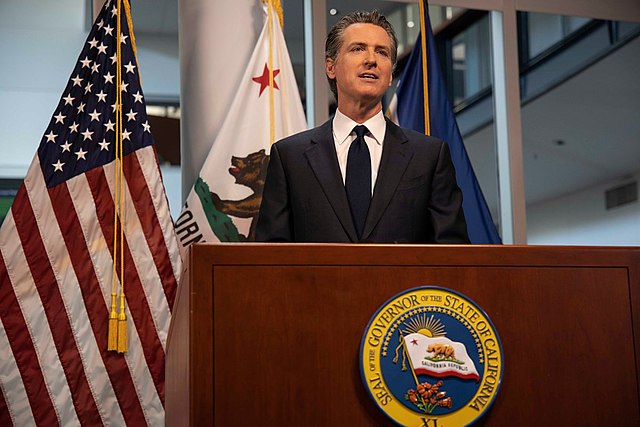
California job cuts will hurt Gavin Newsom’s White House run
California Governor Gavin Newsom loves to describe his state as “an economic powerhouse”. Yet he’s far more reluctant to acknowledge its dramatically worsening employment picture.
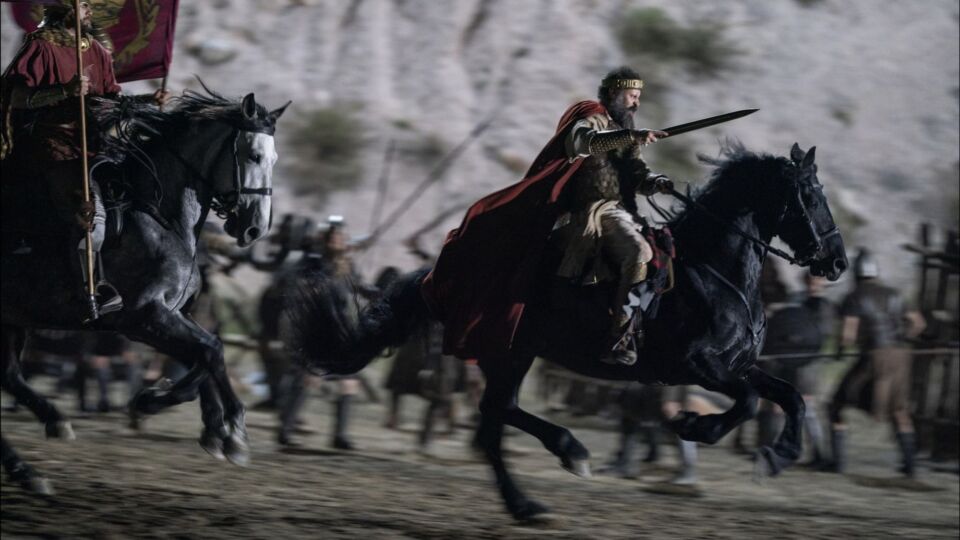
An anti-woke counter-revolution is sweeping through the media
From Hollywood to the newsroom, the hegemony of the ‘progressives’ is finally faltering.
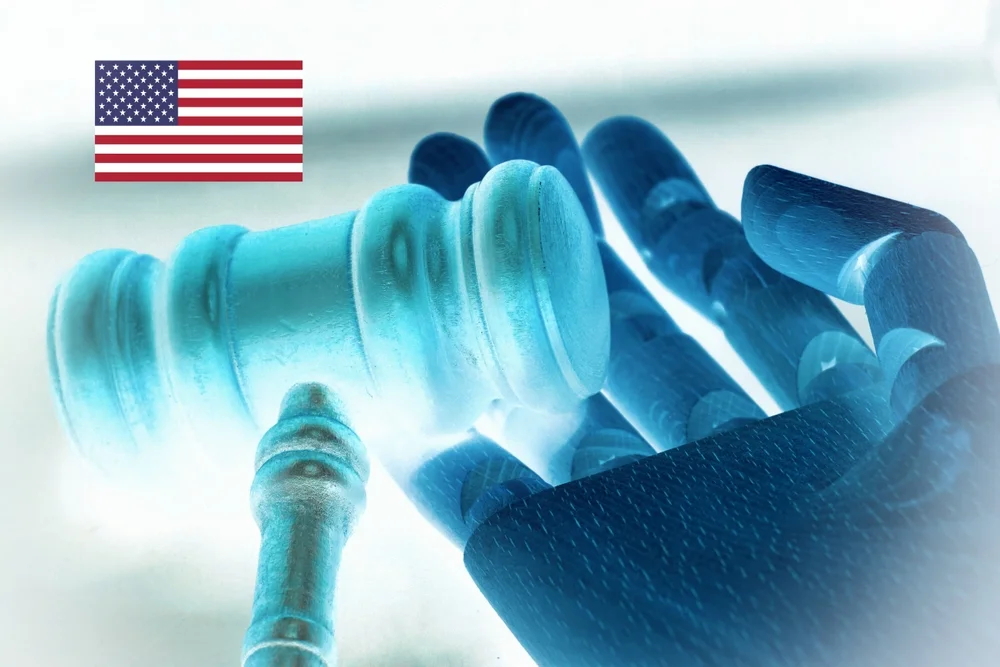
Beyond the Border: How Extraterritorial State Laws Risk America’s AI Ambitions
True policy innovation in AI requires states to respect the boundaries of their authority and allow the freedom of movement for both people and resources that defines a truly national market.
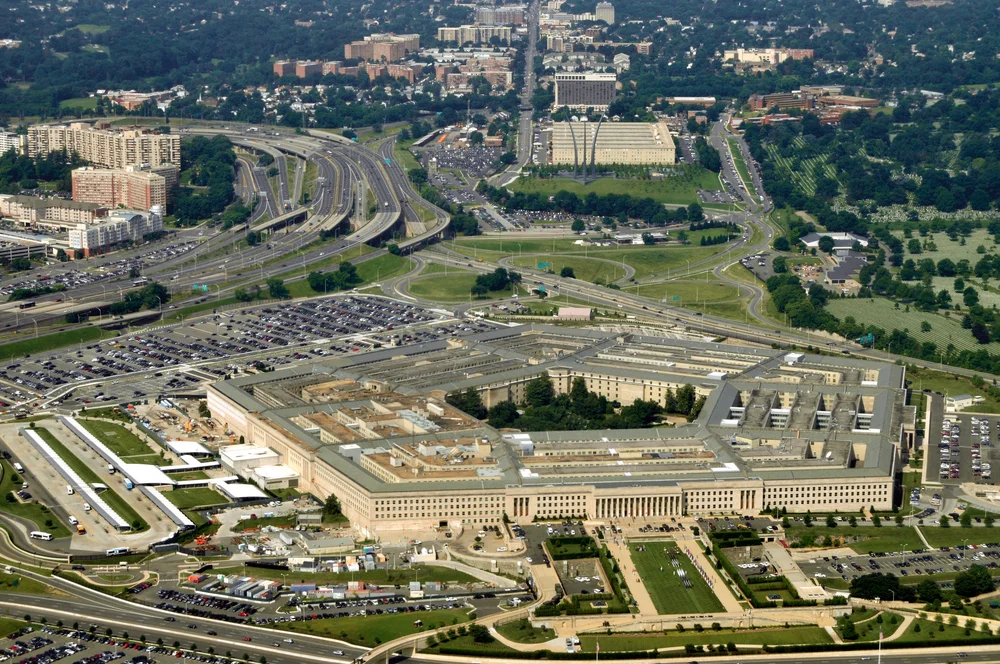
The Trump National Security Strategy Is Good, Bad, and Ugly All at Once
Like the classic Clint Eastwood western, the Trump Administration should have titled its National Security Strategy: “The Good, the Bad, and the Ugly.”


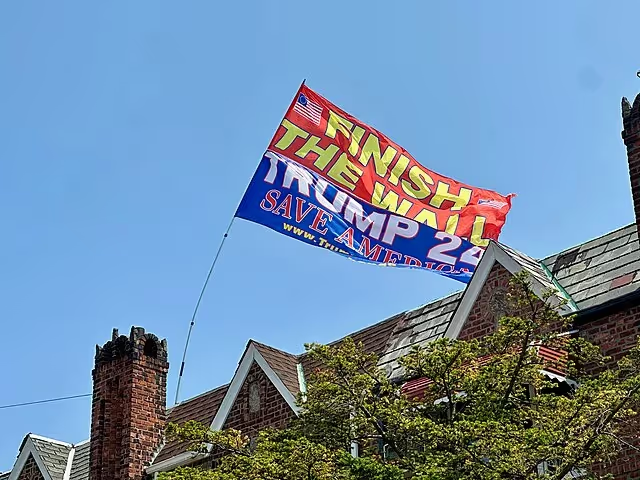

%20(1).jpg)
